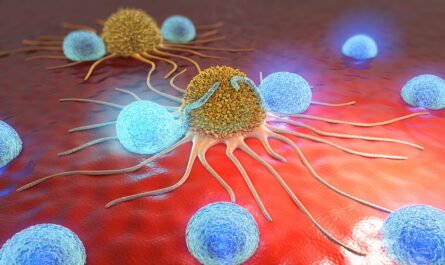The global microbial API industry has seen tremendous growth over the past decade and is poised to play a critical role in drug development and manufacturing going forward. Let’s take a deeper look at some of the key trends and factors fueling this growth.
Growth of Generic Drug Market
One of the major drivers of the microbial fermentation API industry has been the massive expansion of the global generics drug market. As large numbers of innovative drugs have gone off patent, this has created a huge opportunity for generic drug manufacturers to produce low-cost versions of these drugs. Microbial fermentation is well-suited for the large-scale, low-cost production that generic drugs require. According to a recent report by Zion Market Research, the global generic drug market was valued at $198 billion in 2018 and is projected to reach $338 billion by 2025, growing at a CAGR of over 8%. This rapid growth of the generic drug sector has translated into surging demand for microbial APIs.
Dominant Producers Expand Capacity
In response to rising demand, leading Microbial API producers have significantly increased their manufacturing capacities over the past 5 years. Chinese firms in particular have made huge investments, with companies like Huahai Pharmaceutical and North China Pharmaceutical Group constructing massive new facilities. Indian producers like Dr. Reddy’s Laboratories and Divis Laboratories have also expanded domestic capacity as well as setting up overseas plants. These capacity expansions have enabled dominant players to gain an even larger share of the microbial API market. For example, Huahai recently stated their goal of capturing 20% of the global market for penicillin products by 2025, up from their current estimated 15% share.
Shifting Production from China and India
While China and India will certainly continue dominating the microbial API industry, some drug makers have sought to diversify production globally due to concerns over geographical concentration risks and trade policy uncertainties. As a result, we are seeing rising investments in facilities in other low-cost regions. For example, several European generic drug companies have announced plans to set up commercial-scale fermentation plants in Mexico, Brazil, and Vietnam over the next 3-5 years. Similarly, some large US-based pharmaceutical firms are seriously considering microbial API production in Malaysia, the Philippines, or Canada going forward. This trend towards more geographically dispersed production networks should help sustain strong long-term growth prospects for the industry.
Biosimilars Fuel Innovation
The rapidly growing biosimilars sector has opened up exciting new opportunities for microbial-based drug development. Biosimilars are ‘follow-on’ versions of biologic drugs produced from living cells using biotechnology. With many blockbuster biologics losing exclusivity in the coming years, biosimilars are projected to become a $35 billion market by 2025 according to Evaluate Pharma. Microbial fermentation allows for cost-effective manufacturing of biosimilars on a commercial scale. We are seeing a wave of new antibody, enzyme, and vaccine biosimilar products utilizing microbial expression systems like yeast, bacteria or algae. This biosimilars boom is energizing R&D at both generic firms and innovative biotech startups, ensuring microbial systems will remain pivotal for biomanufacturing innovation going forward.
Environmental Benefits of Microbial Production
In addition to advantages like low costs, reproducibility and scalability, microbial fermentation processes offer significant environmental benefits compared to traditional extraction and chemical synthesis methods. Using microbes to produce high-value compounds represents a ‘green chemistry’ approach that is attractive for both business and regulatory reasons. Fermentation reduces hazardous waste, avoids use of harsh chemical solvents, and has a smaller carbon footprint than traditional manufacturing routes. These eco-friendly attributes are becoming increasingly important to pharmaceutical firms looking to strengthen their sustainability credentials and environmental stewardship. Going forward, regulatory tailwinds and consumer preferences may give microbial-derived APIs an additional competitive edge in certain markets.
In closing, the confluence of factors like growing generics and biosimilars sectors, expansions by dominant producers, shifting geographic profiles, and environmental stewardship are fueling strong projected growth of 7-8% annually for the global microbial API industry in the coming years. Microbial systems have proven their versatility for low-cost production of a wide array of drugs. With continued improvements in fermentation technology and product pipeline innovation, microbial producers are well-positioned to play a critical role in the pharmaceutical sector’s future.



